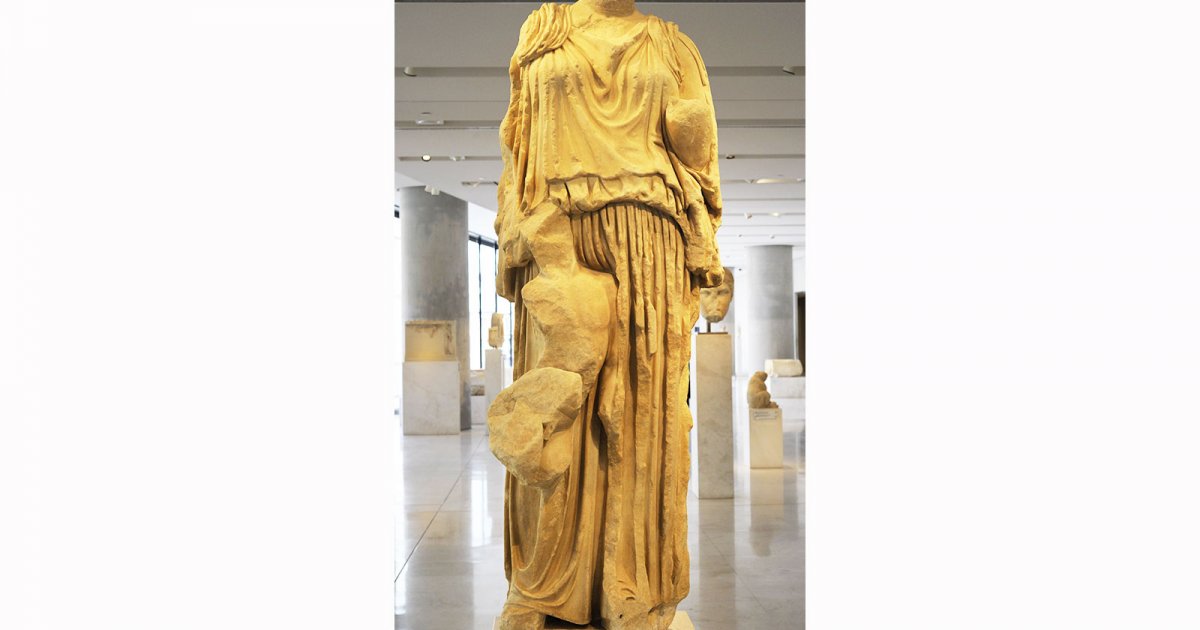ACROPOLIS MUSEUM, First Floor Prokne
 Language: English / USA
Language: English / USA
The last of the large rooms on the first level of the Museum mostly contains Roman copies of Classical works and likenesses of philosophers and historical figures dating to between 500 BC and 400 AD.
“Prokne contemplating the killing of her son” is an original sculptured group, and one of the most representative, although it is badly damaged.
The work illustrates a cruel episode from mythology. Prokne was the wife of Tereus, by whom she had a son, Itys. Tereus, however, raped his beautiful sister-in-law Philomela and cut out her tongue so she could not tell Prokne. Nonetheless, the young woman wove a tapestry to show her sister what had happened.
Prokne was so horrified that she decided to punish her husband by killing their son, chopping him up into pieces and feeding him to Tereus. When Tereus discovered what the sisters had done, he tried to kill them both, but the gods took pity on them and turned Prokne into a swallow and Philomela into a nightingale so they could escape.
The sculpture, perhaps another work by Alkamenes, shows the moment in which Prokne makes her tragic decision, and the little boy, unaware of his fate, embraces his mother tightly in search of her affection. The contrast between the motionless mother, with her face looking downwards, imprisoned by her fate, and the tender embrace of her son, Itys, represents the tragedy of the drama that is about to be played out.
Through the tragedy of shattered family love, the sculptor Alkamenes depicts Greece torn apart by the famous, internecine Peloponnesian War, which led to the ruin of Athens and of the whole of Greece.
Another magnificent work you can admire here is the Portrait of Alexander the Great, attributed to the sculptor Lysippos. It is a Roman copy, but it was the prototype of numerous portraits of the great leader. It was also one of the first sculptures of Hellenistic art, in which the subject was no longer idealized, but portrayed realistically, with psychological depth.
An interesting fact: mythology was important for the Greeks because they used the myths as an attempt to explain historical events or natural phenomena relating to the mysterious relationship between Man and the world around him.



